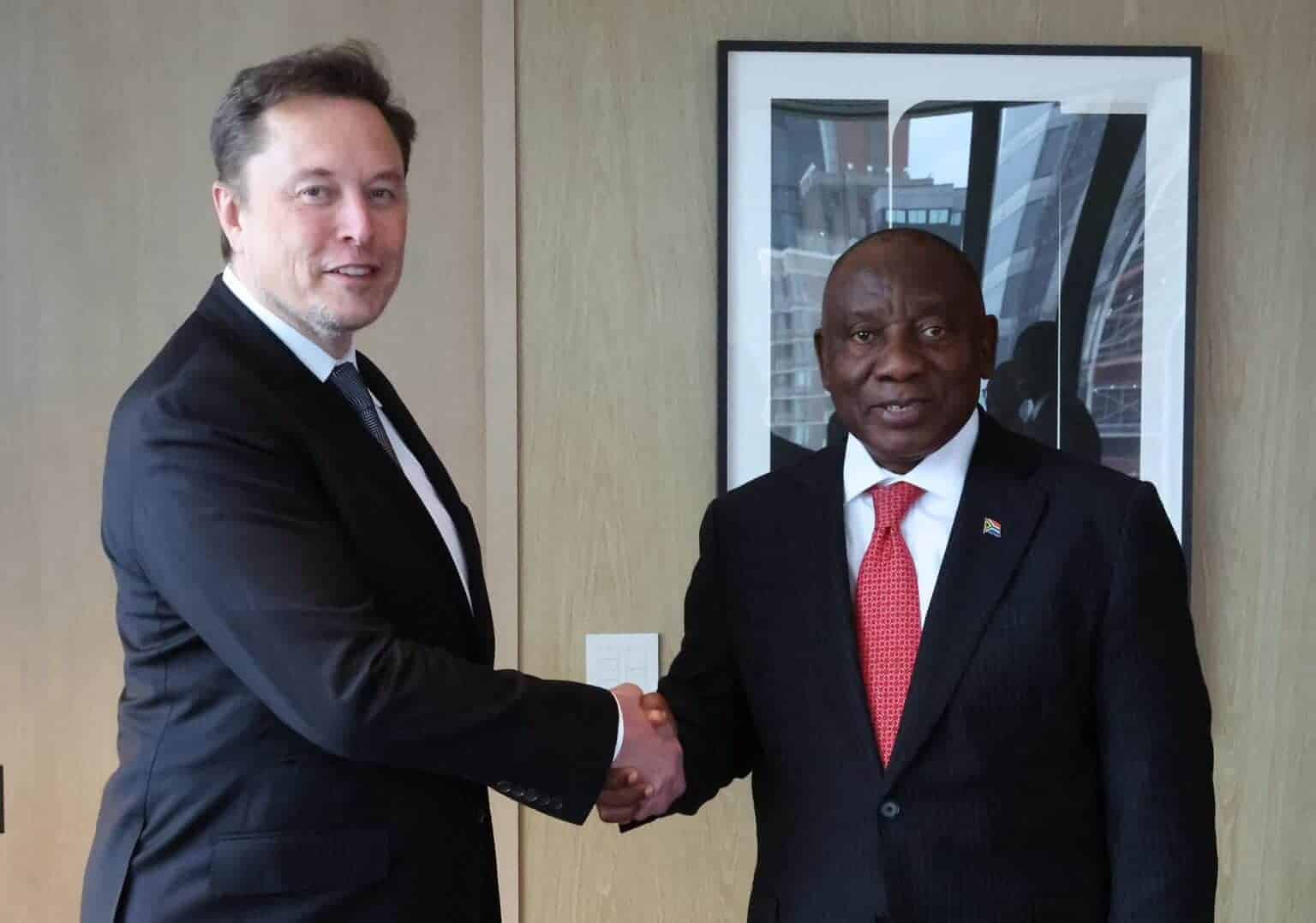Starlink remains unavailable in South Africa, despite neighbouring countries using its service.

Tesla boss Elon Musk’s politics may be “highly questionable”, but his offer to bring SpaceX’s Starlink internet-satellite service to South Africa is “not anti-B-BBEE”, North-West University principal and vice-chancellor Professor Bismark Tyobeka says.
Talks on launching Starlink in South Africa stalled earlier this year after Musk and US President Donald Trump ramped up public rhetoric against policies such as BEE laws, which mandate that foreign-owned telecoms companies allocate at least 30% of local equity to historically disadvantaged groups, primarily black South Africans.
‘Starlink barred’
Musk, who is South African-born, previously claimed Starlink was barred from operating in South Africa because he is not black, an allegation South African officials refuted.
In May, Communications and Digital Technologies Minister Solly Malatsi published a policy direction to provide alternatives, paving the way for the Starlink satellite internet service in the country.
Malatsi issued the directive two days after President Cyril Ramaphosa met his US counterpart Donald Trump in Washington to “reset” strained relations following false claims of “white genocide” and attacks against Afrikaner farmers in South Africa, a statement also made by Musk, who attended the meeting in the White House’s Oval Office.
ALSO READ: WATCH: Starlink not debated with Trump, Ramaphosa says
Unavailability
However, despite this, Starlink remains unavailable in South Africa, despite neighbouring countries using its service
Tyobeka said in 2019, carmakers such as BMW AG, Toyota and Ford were offered a similar arrangement, whereby they established a fund to bring historically marginalised groups into the automotive sector.
“When it comes to Starlink, the Independent Communications Authority of South Africa (Icasa) must ultimately decide whether to grant a licence.
“As an alternative to black ownership regulations, and as a nudge towards allowing Starlink to operate in South Africa, the company has pledged to provide 5 000 rural schools with free access to its services, giving 2.4 million pupils high-speed internet,” Tyobeka said.
‘Not anti-BBBEE’
More than four decades ago, two beloved friends in a classic Star Trek film exchanged words to the effect of: “The needs of the many outweigh the needs of the few… and the one.”
Tyobeka concurs.
“While Elon Musk’s politics may be highly questionable, I think his offer is not anti-B-BBEE. If anything, free high-speed internet to 5 000 rural schools and free Wi-Fi to 2.4 million pupils would constitute mass empowerment to all, regardless of colour. In any case, the majority of the beneficiaries of such a rollout would be 90% black, if not more.
“During the Covid pandemic, neither the government nor the private sector made enough free data available to students and pupils in rural areas. This offer, if well executed, would be revolutionary in nature. If the exemption that Starlink is asking for is something that we have been applying as an alternative in the auto industry for years, then why not?” Tyobeka said.
ALSO READ: EFF threatens legal action over plans to offer Elon Musk’s Starlink [VIDEO]
Digital divide
Tyobeka said South Africa must also consider the multiplier effect of such an initiative.
“Free connectivity for schools and universities would not only help bridge the digital divide, but it would also boost the economy by equipping young people with digital skills that are indispensable in today’s job market.
“Faster, reliable access to online resources can improve teaching outcomes, expand research opportunities, and prepare graduates who are work-ready. In the long term, this translates into a more skilled workforce, increased productivity, and ultimately a stronger, more inclusive economy,” Tyobeka said.
Choice
Tyobeka said South Africa’s regulators now face a choice
“To uphold rigid ownership rules or to embrace an alternative that could bring millions online. The question is whether ideology will outweigh opportunity, or whether, this time, the needs of the many will prevail.”
Starlink operates thousands of low-earth orbit (LEO) satellites to provide high-speed internet globally.
ALSO READ: Starlink making strides in transforming broadband access — Report






